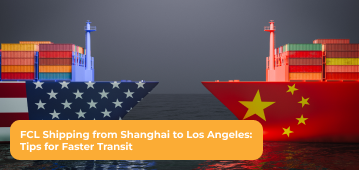The Future of Pharmaceutical Logistics: How Air Freight is Adapting to Industry Demands
In the rapidly evolving world of pharmaceuticals, the need for efficient, reliable, and compliant logistics solutions has never been more critical. As the industry continues to grow and innovate, the role of air freight in pharmaceutical logistics is becoming increasingly important. This article explores how air freight is adapting to meet the unique demands of the pharmaceutical industry, ensuring that life-saving medications and treatments reach their destinations quickly and safely.
The Importance of Air Transport in the Pharma Supply Chain
In the world of pharmaceutical logistics, air freight stands out as a crucial mode of transport, especially for products that demand strict temperature control and timely delivery. From vaccines to life-saving medications, these sensitive items must reach their destinations quickly to ensure they remain safe and effective. Air transport offers the speed and reliability needed to support global healthcare systems and urgent medical needs.In urgent scenarios, this rapid delivery becomes even more critical, as any delays can lead to serious consequences for patient health.
In addition to speed, air transportation offers exceptional efficiency. With a vast global network, air freight allows pharmaceutical companies to ship products across the world in a matter of hours. This reduces lead times dramatically and helps the supply chain remain agile and responsive to demand fluctuations, ensuring medications are readily available when and where they’re needed most.
Maintaining Temperature and Ensuring Compliance
A major challenge in pharmaceutical transportation is keeping products within specific temperature ranges throughout the shipping process. Many drugs lose their effectiveness if exposed to temperatures outside their prescribed limits. Air freight providers utilize advanced temperature-controlled systems that help maintain optimal conditions from departure to delivery.
Moreover, these providers are typically well-versed in handling the strict regulations governing pharmaceutical transport. Air freight providers often have specialized teams focused on regulatory compliance and documentation, ensuring shipments align with international guidelines such as the International Air Transport Association (IATA) and Good Distribution Practice (GDP). Their in-depth knowledge of these standards plays a key role in safeguarding product integrity and upholding global shipping requirements.
Security Measures and Real-Time Visibility
Due to the high value and delicate nature of pharmaceutical cargo, ensuring robust security measures is absolutely essential. Air freight services implement stringent security protocols to guard against theft, tampering, or damage during transit.
Additionally, cutting-edge tracking technologies enable real-time monitoring of shipments. This visibility helps pharmaceutical companies keep tabs on the movement and condition of their products throughout the journey. The ability to track shipments not only improves supply chain transparency but also boosts stakeholder confidence and allows for immediate response in case of disruptions.
Emerging Technologies and the Road Ahead
While air freight offers numerous advantages, it does come with challenges. High operational costs can be a burden, particularly for smaller companies. Furthermore, during peak periods, limited cargo space can lead to delays or higher transportation fees.
However, the industry is evolving through innovation. Advancements such as eco-friendly aviation fuels, smarter packaging solutions, and digital route optimization tools are helping to reduce costs and environmental impact while improving overall efficiency.
The future of air freight in pharmaceutical logistics is likely to be shaped by the increasing demand for personalized treatments, biologics, and other advanced therapies. These products often require even tighter temperature control and faster delivery timelines. To meet these demands, air freight providers must continue to innovate and tailor their services accordingly.
Conclusion
Air freight is an indispensable component of the pharmaceutical supply chain. Its ability to provide rapid, efficient, and secure transportation makes it an ideal choice for ensuring that vital medical products reach those who need them most. By continuing to innovate and address challenges, air freight will play a critical role in shaping the future of global healthcare delivery. As the pharmaceutical industry continues to evolve, so too will the role of air freight, ensuring that life-saving medications and treatments are delivered safely and efficiently, no matter where they are needed.
Like





Comments